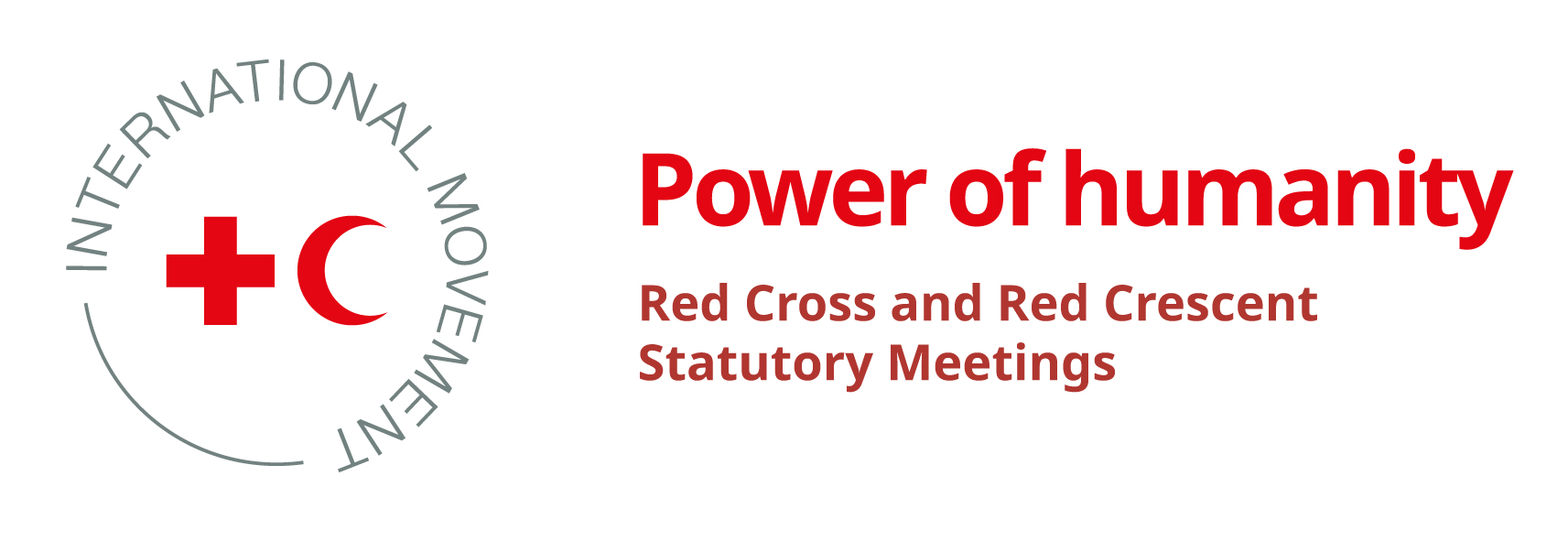Joint Statement
Red Cross and Red Crescent Present Five Resolutions to Tackle Global Humanitarian Challenges at its 34th International Conference
Geneva (ICRC/IFRC) – The 34th International Conference of the Red Cross and Red Crescent taking place 28-31 October brings together one of the world’s largest humanitarian networks, including 191 National Societies, together with 196 states party to the Geneva Conventions. The meeting, which takes place every four years, will focus on five key resolutions aimed at advancing humanitarian solutions to global challenges.
As an apolitical and purely humanitarian forum, this year’s meeting comes at a critical time, amid headlines dominated by escalating conflicts and disasters, underscoring the urgency of refocusing the world´s attention on the populations facing today’s crises.
Kate Forbes, President of the International Federation of Red Cross and Red Crescent Societies (IFRC), said: “In an increasingly polarized world, the International Conference highlights the importance of our global Movement in tackling today’s complex challenges. The Red Cross and Red Crescent serve as an example of the best of humanity in turbulent times.”
Mirjana Spoljaric, President of the International Committee of the Red Cross (ICRC), said: “The unbearable levels of suffering caused by today’s conflicts demand immediate action. Too many communities are being destroyed and too many families torn apart in today’s warzones. The international community must urgently reaffirm its commitment to international humanitarian law and prioritize protecting civilians. Strengthening this consensus is essential to our shared humanity.”
The conference agenda focuses on pressing humanitarian issues, such as compliance with international humanitarian law, the protection of civilians and aid workers, the impact of digital technologies on warfare, and enabling locally-led action. The resolutions aim to guide global humanitarian action and address emerging challenges, including:
Building a Universal Culture of Compliance with International Humanitarian Law: This resolution promotes international humanitarian law (IHL) by encouraging states to support universal respect for IHL, including protections for civilians and humanitarian workers.
Protecting Civilians from the Humanitarian Impact of Digital Technologies in Armed Conflict: As digital warfare risks escalate, this proposal sends a clear signal that all states and Red Cross and Red Crescent societies recognize the potential human cost of malicious ICT activities and commit to safeguard civilians and critical infrastructure from cyberattacks.
Strengthening Disaster Risk Governance: This resolution calls for comprehensive legal frameworks to improve disaster risk management and enhance global resilience in response to disasters.
Enabling Local Leadership and Strengthening Resilience in Humanitarian Action: Emphasizing local ownership, this initiative encourages sustainable, community-led responses to crises by empowering local actors in humanitarian efforts.
Protecting People from Climate-Related Humanitarian Impacts: In response to the growing threat of climate change, this resolution calls for anticipatory action and global cooperation to mitigate the humanitarian consequences of extreme weather events on vulnerable populations.
The Red Cross and Red Crescent Movement has a long history of advancing international humanitarian law and neutral, impartial humanitarian action. Past International Conferences have driven significant progress, including in shaping the Geneva Conventions of 1949, defining the humanitarian principles for humanitarian action recognized globally, or the launch of the global campaign to ban landmines and the adoption of disaster relief guidelines. Recent conferences have addressed issues like gender-based violence, mental health, and pandemic preparedness. This year’s resolutions reaffirm the Movement’s commitment to adapt and respond to evolving challenges in humanitarian work.
Every discussion at this year’s International Conference is a step toward easing the suffering of people affected by conflict, disaster, and crisis. While reflecting on these successes and addressing new challenges, the Red Cross Red Crescent Movement reaffirms the importance of this apolitical space in advancing solutions that protect their dignity and rights.




